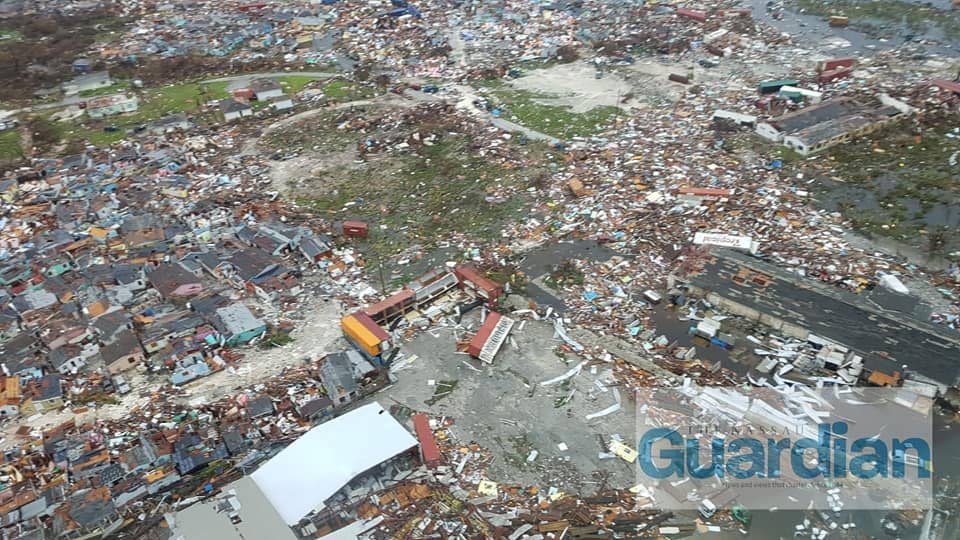Climate change – are we doing all we can?

LESLEY JOHN, ACCA marketing and planning manager
NASA defines climate change as: "A broad range of global phenomena created predominantly by burning fossil fuels, which add heat-trapping gases to earth’s atmosphere. These phenomena include the increased temperature trends described by global warming, but also encompass changes such as sea level rise; ice mass loss in Greenland, Antarctica, the Arctic and mountain glaciers worldwide; shifts in flower/plant blooming; and extreme weather events." In the simplest of terms, atmospheric temperatures are rising as a direct and indirect result of human activity, and this in turn has impacted long-term weather patterns in a way that could endanger our future sustainability.
Despite the many naysayers, climate change is indeed real and the Caribbean has seen and felt the effects over the past few years. Some of the observable impacts include more frequent and more severe hurricanes, increase in heavy rainfall, longer periods of drought, coastal erosion, coral bleaching, decreased freshwater stocks, changes in fish species abundance, loss of land and forests and an increase in vector-born diseases, including malaria. (UNDP)
The Intergovernmental Panel on Climate Change (IPCC) predicts that the Caribbean region is projected to see an increase in temperature of between 0.94 to 4.18 degrees Celsius, while rainfall is projected to undergo changes of between -49.4 to 28.9 per cent by 2069 (relative to the 1961-1990 period). Sea level is also expected to rise 15 to 95 cm by 2100. What this means is that some of the effects we are already experiencing could become even more intense, including up to altering hurricane tracks so that islands such as TT may be forced to cope more regularly with this type of natural disaster. (www.odpm.gov.tt)
The Caribbean is a minor contributor to global greenhouse gas emissions but the small island states will be among the countries most vulnerable to climate change impacts.
Governments in the region are taking this threat seriously and many have taken steps to mitigate the negative effects of climate change through the implementation of measures aimed at climate resilience and climate adaptation. Just this past April representatives of governments from the region attended a regional workshop on innovation and implementation of national adaptation plans (NAPs), with the support of UN Environment and UNDP through the Global Environment Facility (GEF)-funded National Adaptation Plan Global Support Programme (NAP-GSP).
All well and good. But is this enough? While governments can determine policy and put climate resilience on the front burner, we have a collective responsibility to reduce our personal and corporate contribution to global warming pollution.
The business community in particular can start by making climate change a priority in business decisions.
• Set targets for reduced emissions. Science-based targets provide credible benchmarks for reduced carbon emissions, and the cost savings from taking action are significant.
• Use more renewable energy. Embracing green energy can help reach ambitious targets ahead of schedule.
• Invest in energy-smart technology. Investing in net zero carbon buildings is a proven self-financing move in terms of annual energy savings.
• Make greater use of electric transport. Offering charging stations to employees looks set to become standard within a few years.
• Make disclosure a strategic tool. Companies need to demonstrate to investors that they are factoring climate change concerns into their business model and growth strategy. (Source: We Mean Business)
As individuals we can:
• Get informed. Read, research, find out more about simple measures you can introduce into your daily life to make a difference.
• Plant a tree
• Reduce reuse and recycle
• Don’t waste food and where possible grow your own
• Wash clothes in cold or warm water (not hot)
• Choose energy efficient appliances. Look for the Energy Star label when buying new appliances
• Reduce water waste
• Car pool
• When the time comes to purchase a new vehicle go hybrid
• Explore renewable energy options
Every small action helps and if we were all to contribute in some way, we will be that much closer to limiting the impact of climate change and assuring a more sustainable future for generations to come.


Comments
"Climate change – are we doing all we can?"